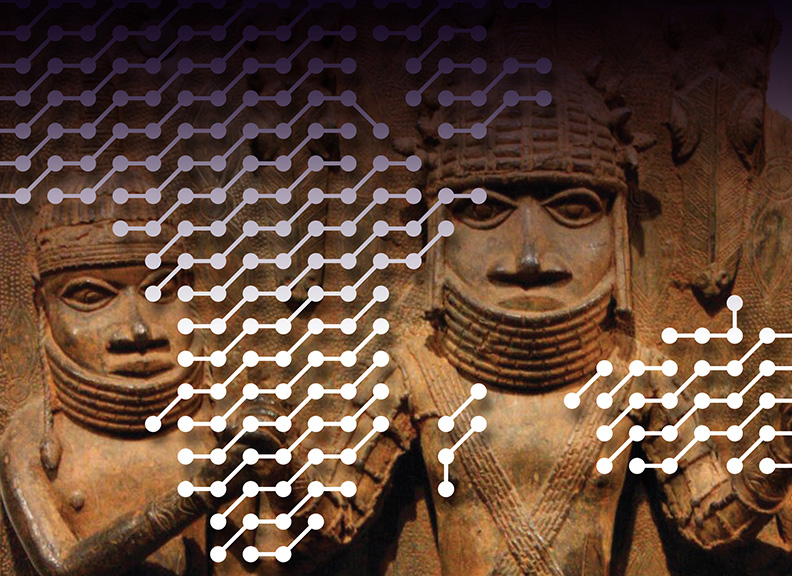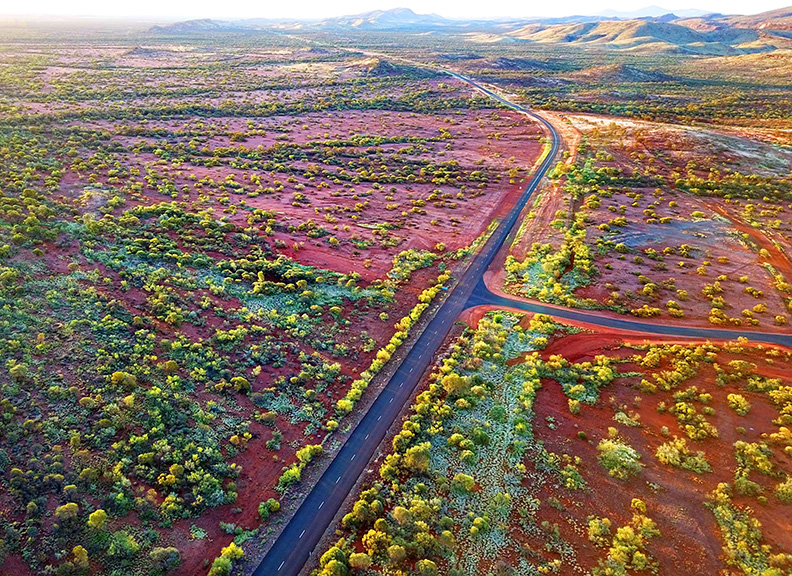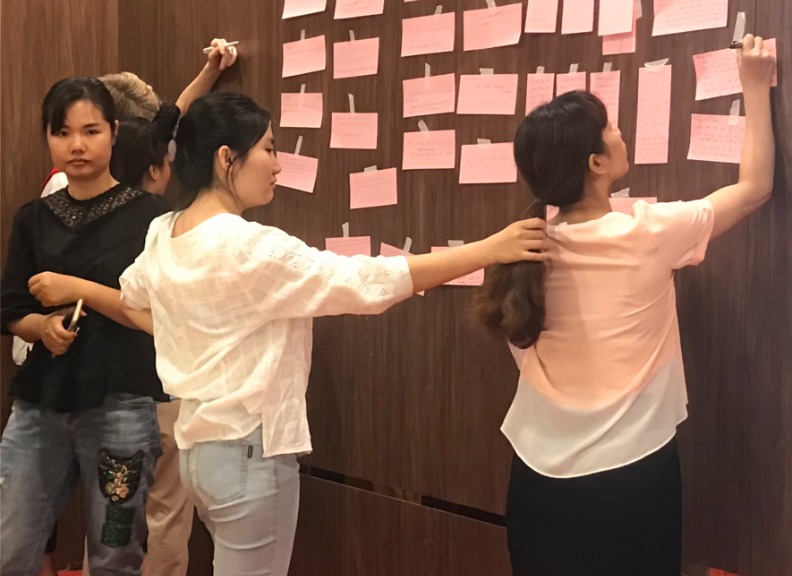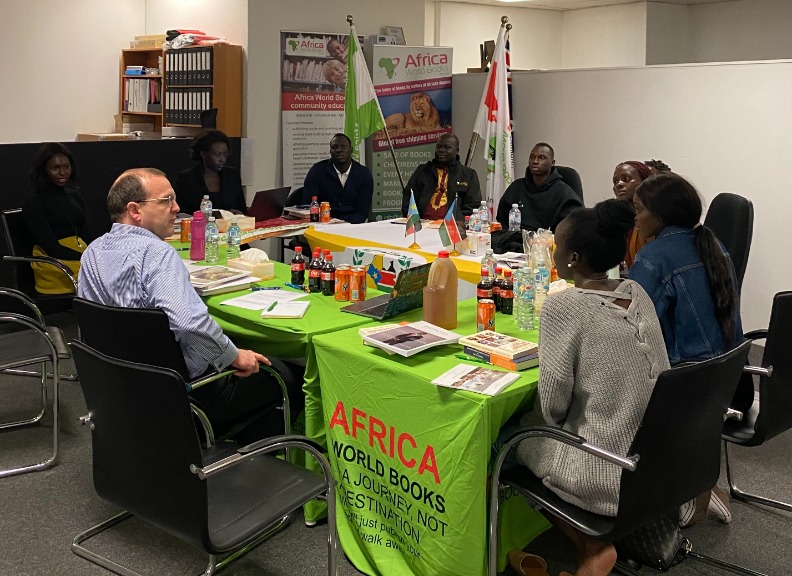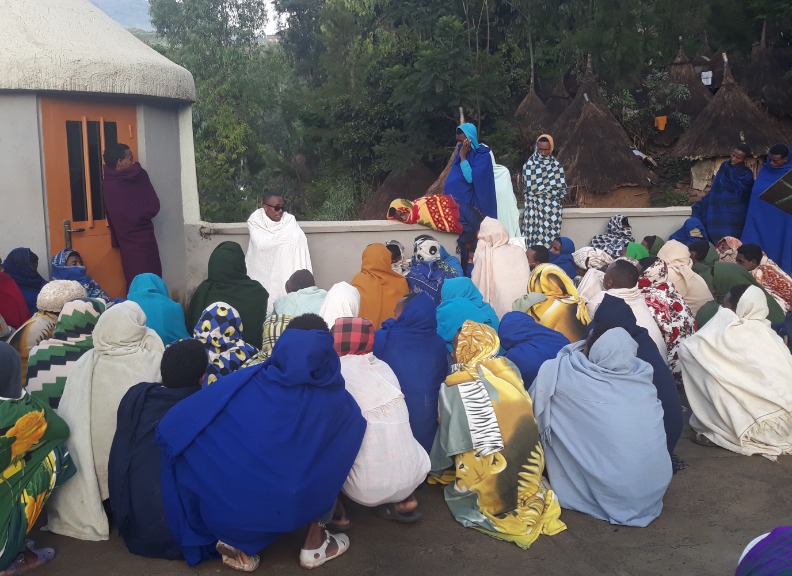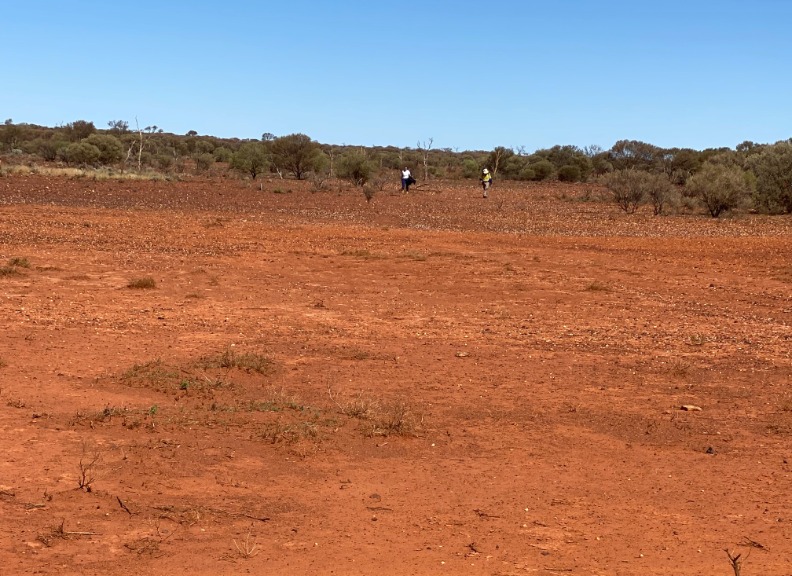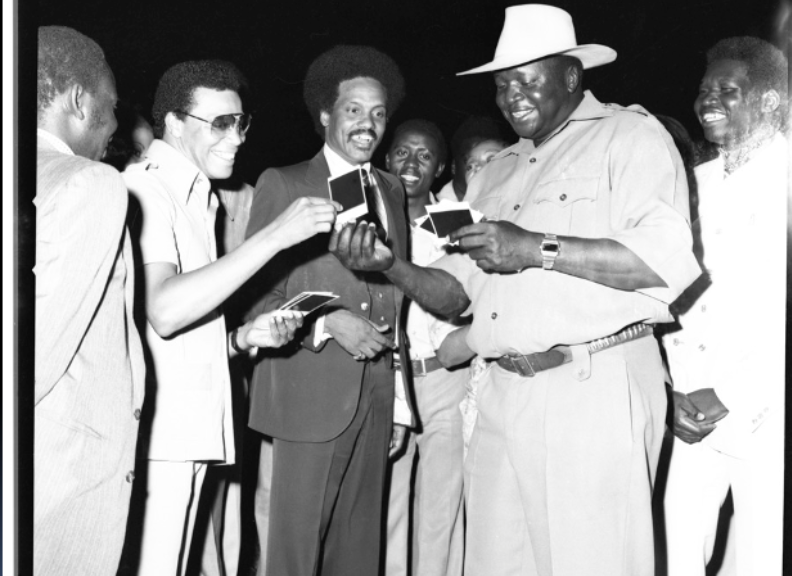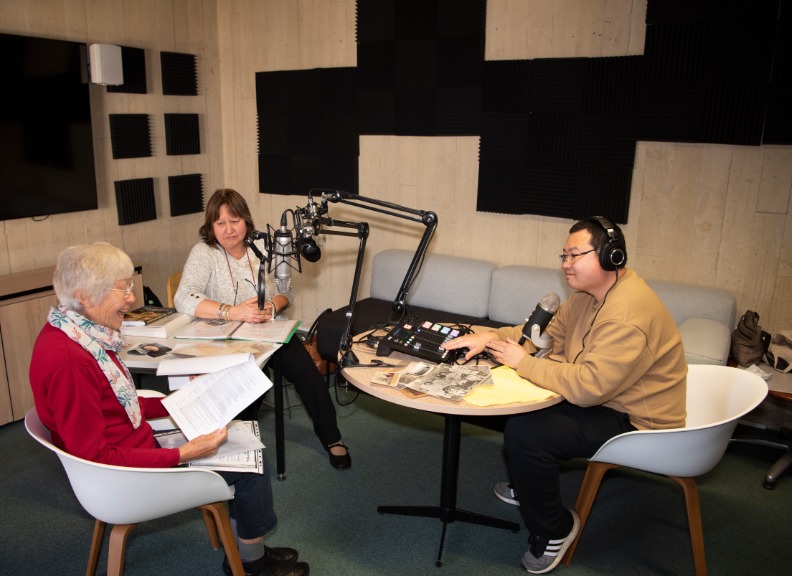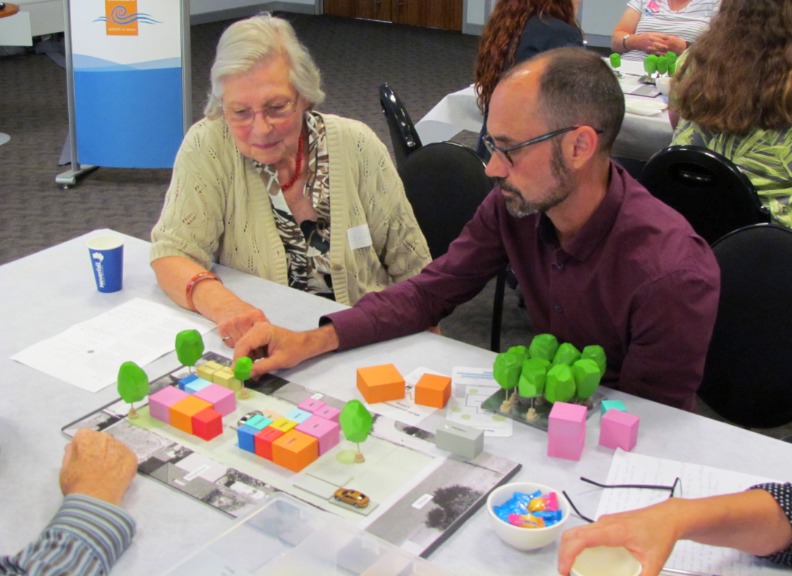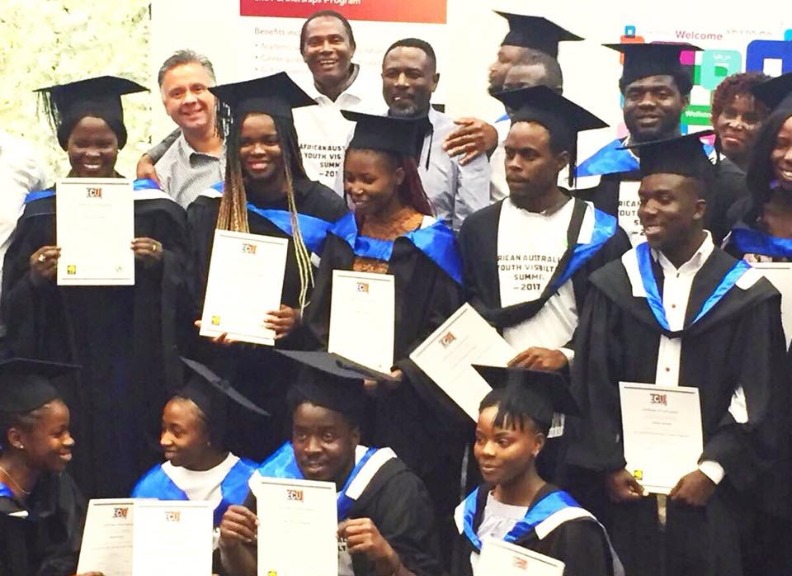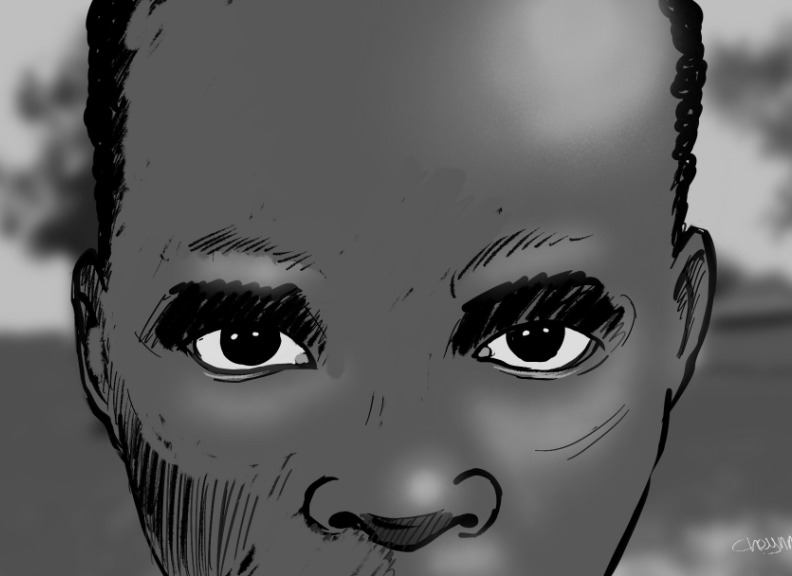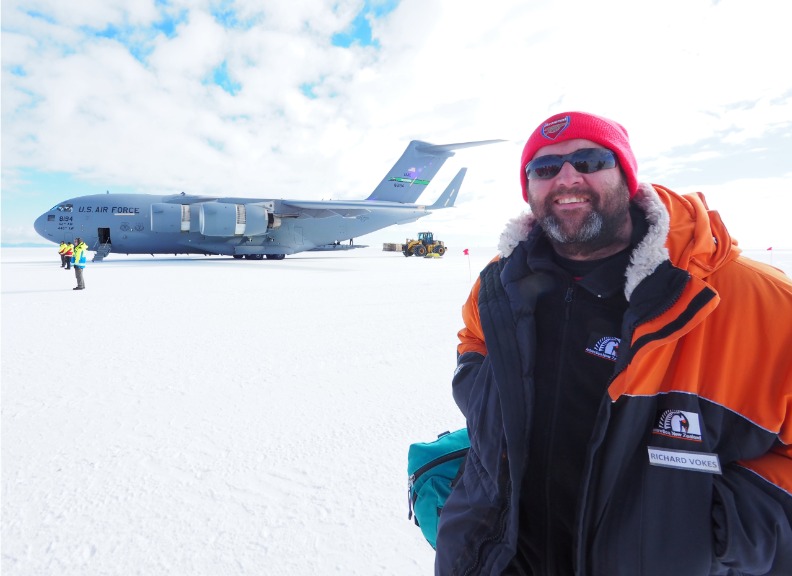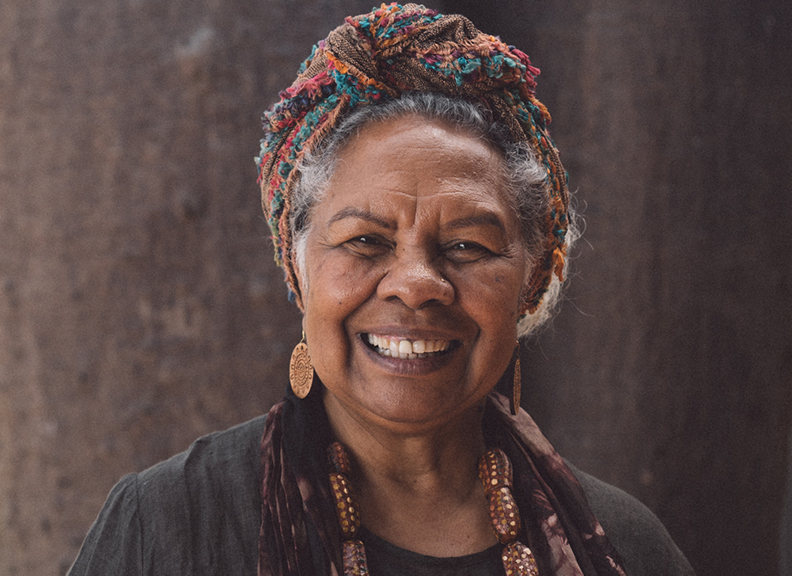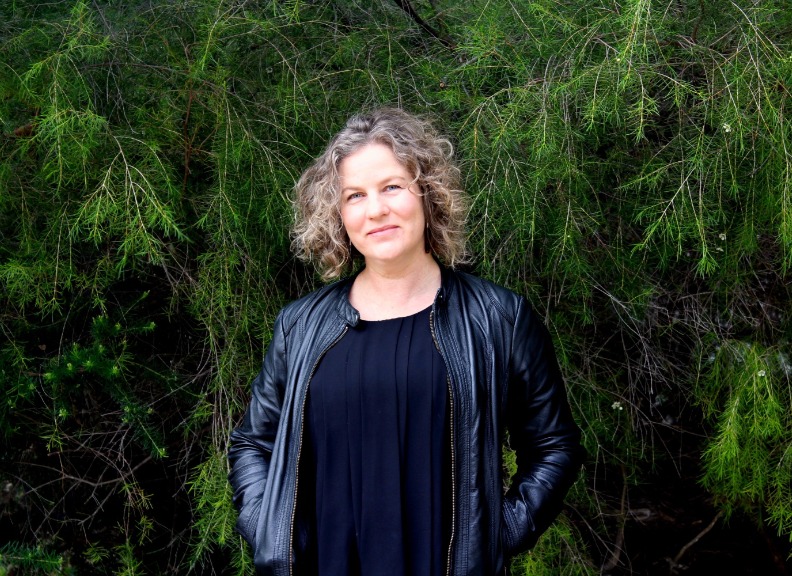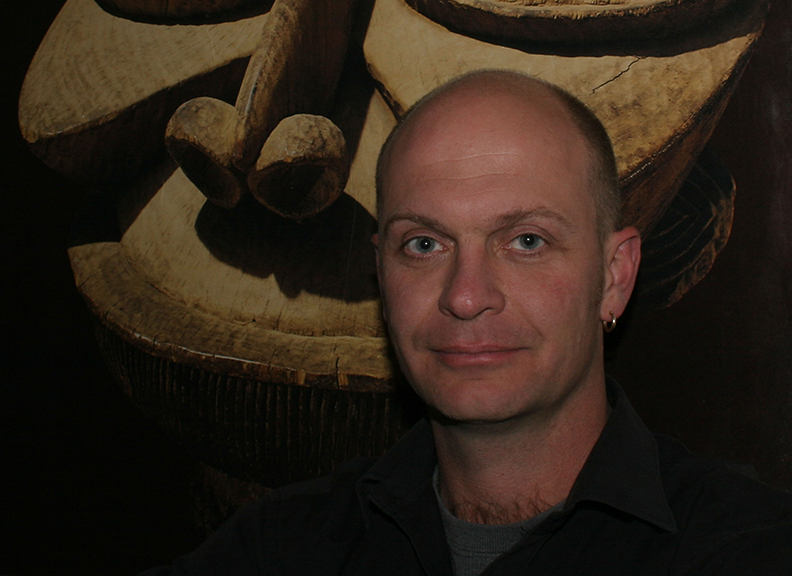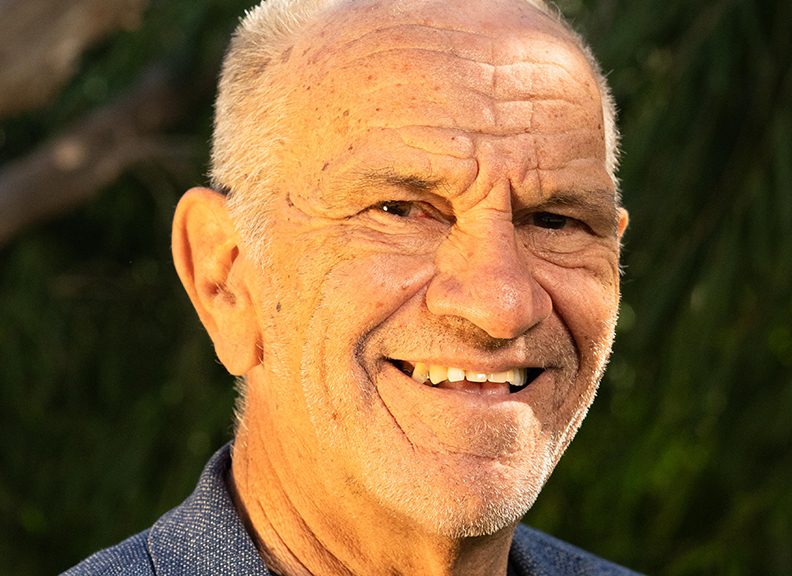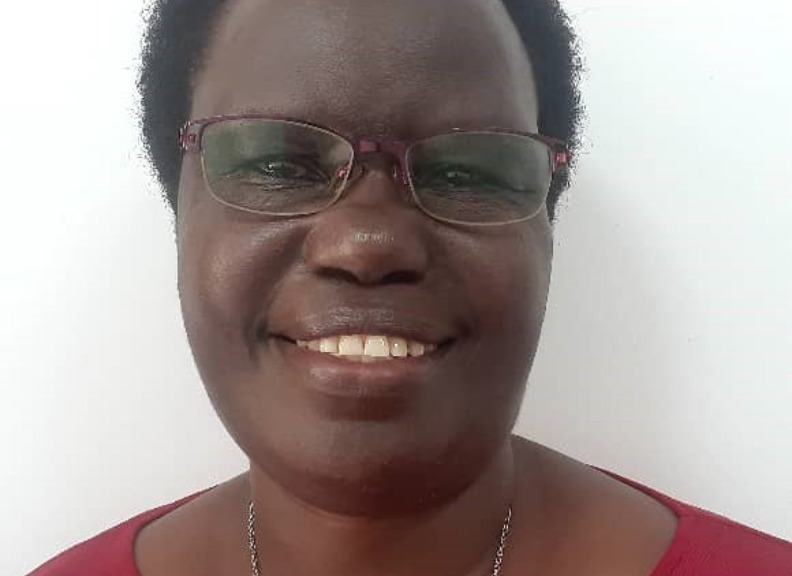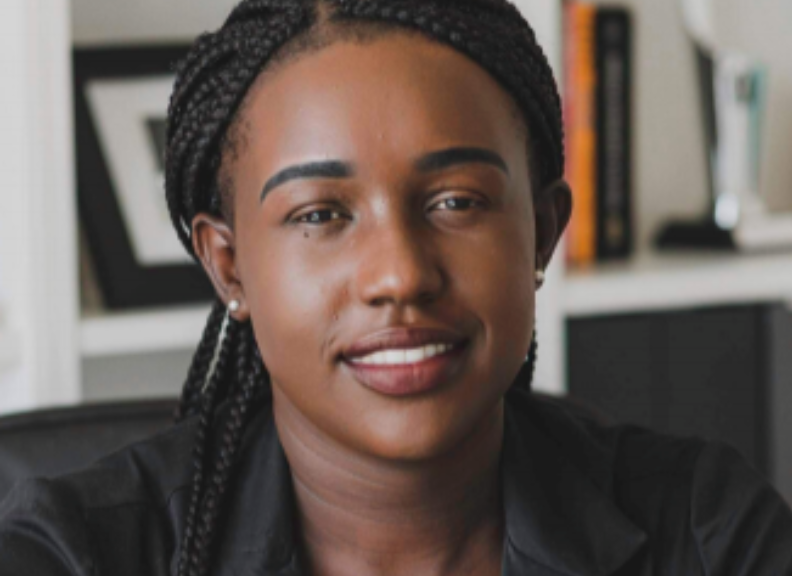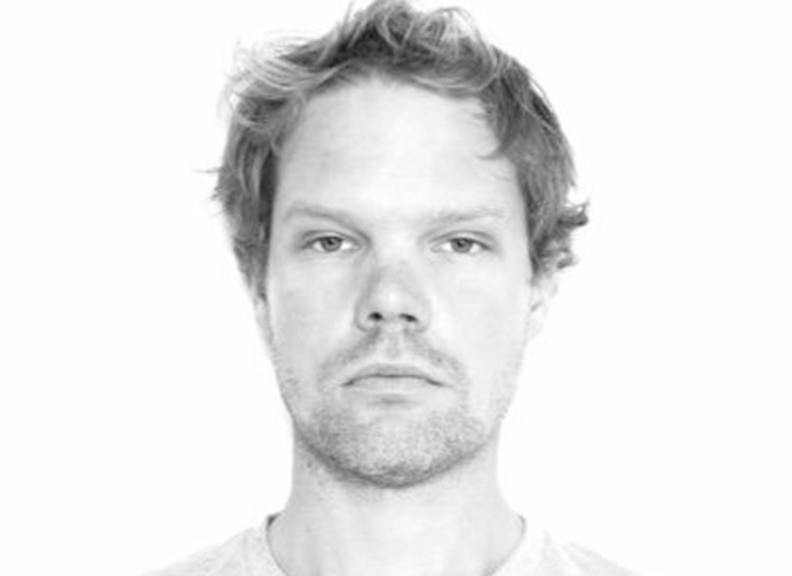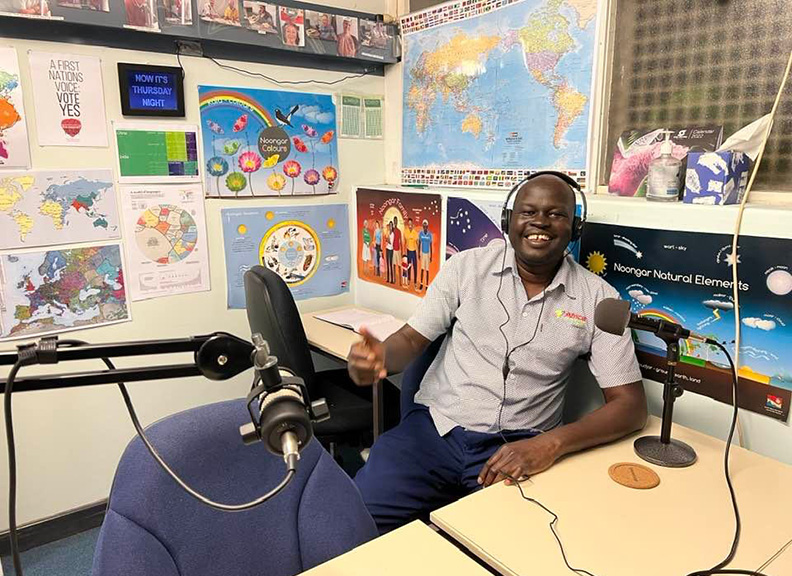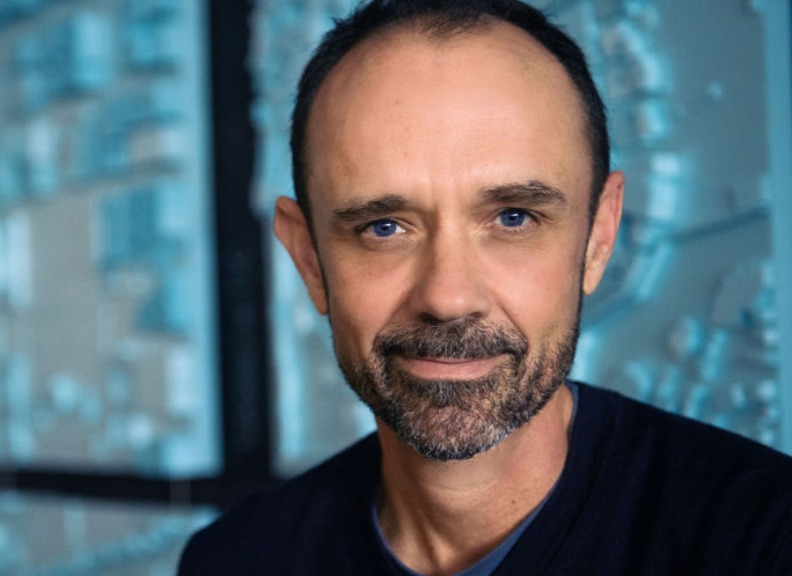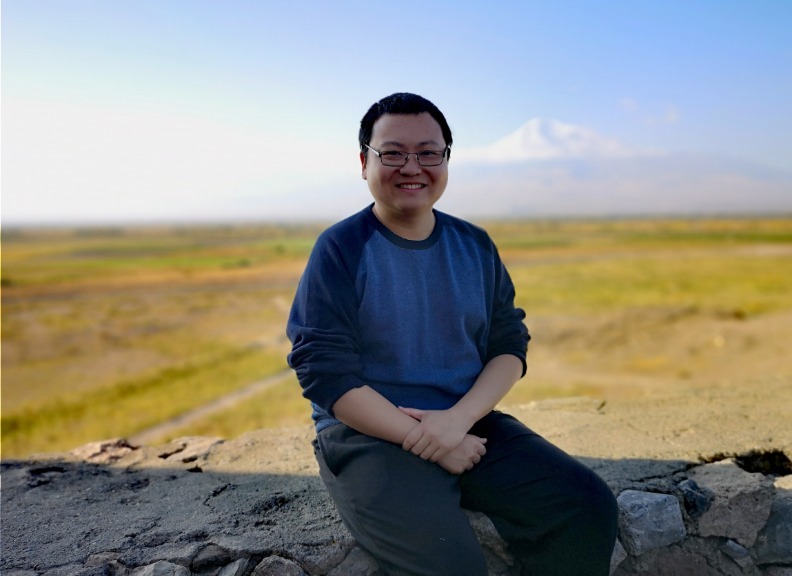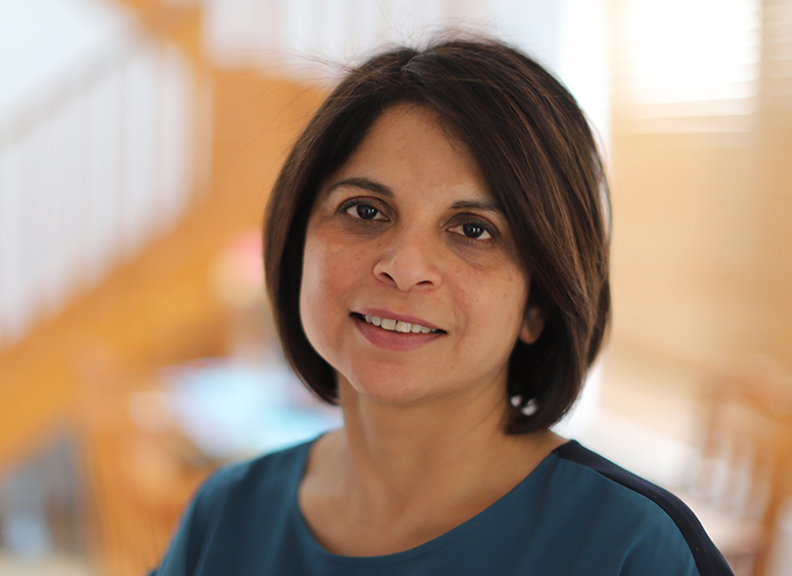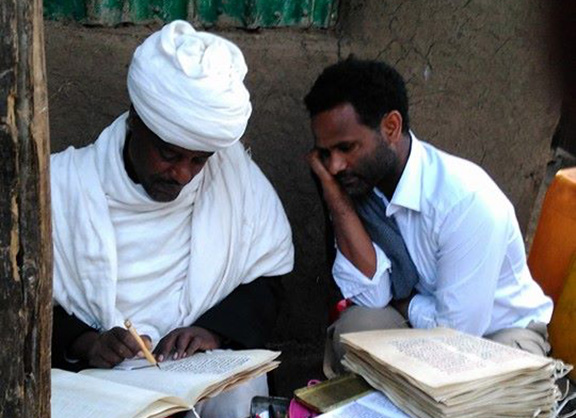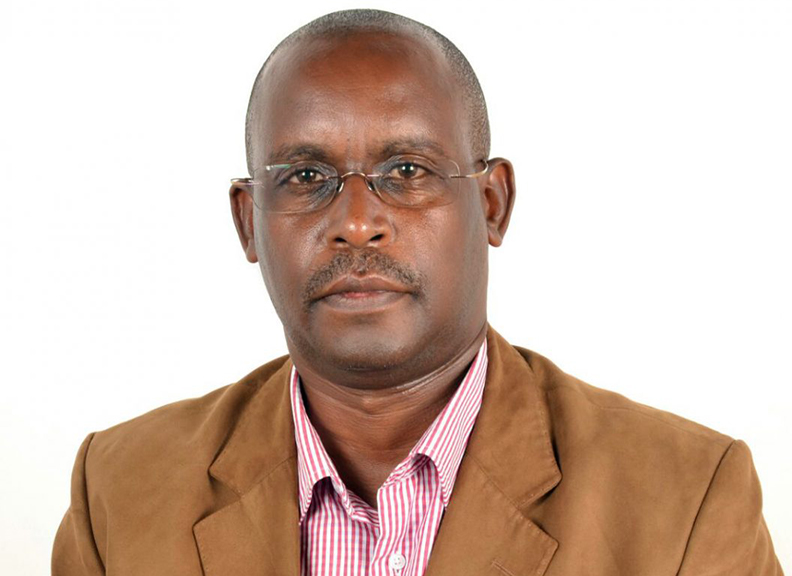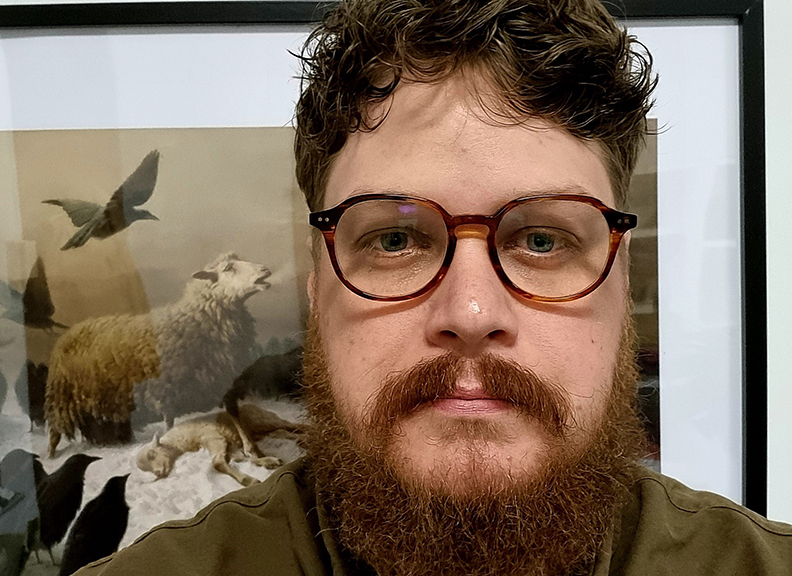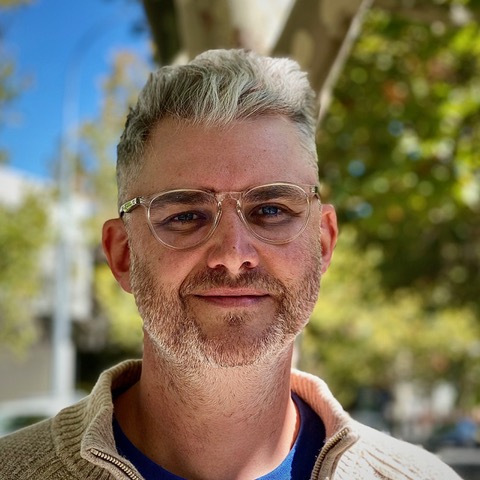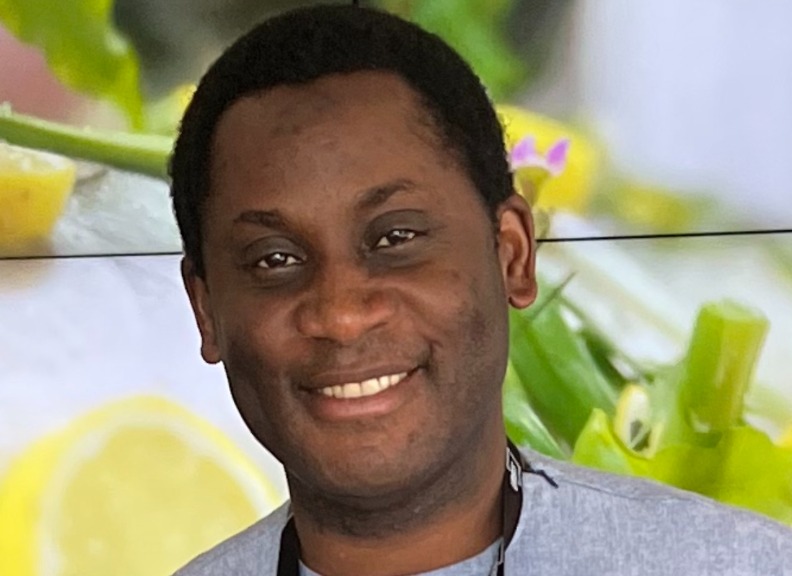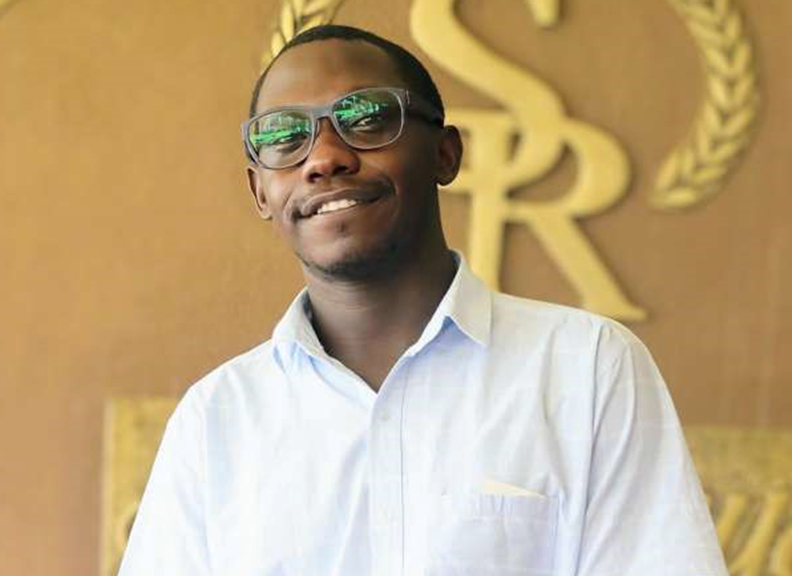The Ethnography Lab of Western Australia
About us
For over a century, ethnography has been foundational for the discipline of anthropology. As has long been recognised, the real strength of ethnography is that it is both a set of research methods, and a set of strategies for representing social and cultural worlds.
The Ethnography Lab of Western Australia is developing innovative, co-designed ethnographic methods, and is forging new, co-produced ethnographic representations, for the century ahead, using the very latest approaches.
Whereas once, we thought that ethnography - as both method and representation - revolved primarily around writing, today we recognise that it includes everything from art, to photography, film, comic books and even theatrical performance.
For those working in the heritage sector, ethnography also requires knowledge of GIS, aerial mapping (via drones), and other technical and digital competencies.
The Lab aims to use digital technologies to support co-designed, multi-modal, ethnographic research. Its projects are looking at: cultural mapping, the digitisation and activation of culturally sensitive archives; digital storytelling and truth-telling, and; the use digital technologies within traditional fieldwork settings.
Digital technologies will allow us to do ethnography in new ways:
- in ways that involve novel combinations of multi-sensory media;
- in ways that allow us to produce and combine ethnographic ‘data’ at all scales (from one remote community, to a transnational field);
- in ways that may ultimately dissolve our former categorical distinctions, such as those between: ethnography as method vs ethnography as representation; field vs archive; human vs other-than-human; ‘the real’ vs the imaginary; and even between researcher vs respondent.
Projects
Africa in Australia Research and Engagement Platform
Africa in Australia Research and Engagement Platform
Australian museum collections contain thousands of African artefacts, all of which have their own meanings, histories and entanglements. This project is telling new stories about the history of Africa-Australian connections, through the medium of these museum collections. It is rethinking what impacts Australia’s ties with Africa have had on this country’s own past and present – and it is looking at how African connections may be used to reshape Australia’s future. African-Australian communities have grown rapidly in the past 20 years, and they have gained increasing public visibility through African community organisations, cultural festivals, and ethnic media broadcasters. Yet whilst the prominence of Africans in Australian public life is new, connections between the two continents is not. On the contrary, for over 200 years, officials and technocrats, entrepreneurs, educators, soldiers and evangelists have moved back-and-forth between Africa and Australia. In all cases, these connections have generated an enormous volume of material culture, and they have also set in motion new circulations of already-existing artefacts – including many kinds of deeply culturally-meaningful artefacts. This project is working with African-Australian communities to develop new, shared understandings about these collections, and to forward conversations about a range of subjects of common interest, from: repatriation, cultural restitution and community healing; to bi-lateral partnerships for heritage protection; to south-south knowledge exchange.
This project is being led by The University of Western Australia, with museum partners the Australian Museum, the Chau Chak Wing Museum at the University of Sydney, the South Australian Museum, the Uganda Museum and the Western Australian Museum, and university partners Makerere University, University of Cambridge, University of Ghana, University of Oxford and University of the Witwatersrand.
Social Surroundings
Social Surroundings
UWA is launching a major new research and engagement project, in partnership with native title corporations, and other partners, called Social Surroundings: Mobilising Landscape Values Beyond Heritage Compliance.
Social Surroundings Assessments (SSAs) are being carried out increasingly across Western Australia, as a legislative requirement for substantial, ground-disturbing proposals under the EP Act 1986. Modernising the acquisition of these social and natural values to meaningfully incorporate the current knowledge, stories, views and perspectives of Aboriginal people is a complex and challenging process – made all the more complex as SSAs have emerged within a space already dominated by heritage compliance under the previous and now WA Aboriginal Cultural Heritage Act (2021). Arguably, this legislation has privileged and commoditised tangible places, features and sites over living landscapes.
This project is collaboratively exploring and evaluating new methods for recording, digitising and democratising the social, sentient, physical and biological values that matter to Traditional Owners. By workshopping new models for the more effective integration of these values into policy, legislation and operational compliance, the project aims to extend coverage and protection beyond statutory heritage compliance.
Through these means, and by leveraging the very latest models and methods on Indigenous Knowledge Systems and Science from global environmental anthropology, the project ultimately aims to achieve more effective protection, management and development of Country.
Transforming Gender, Transforming Agriculture in Vietnam
Transforming Gender, Transforming Agriculture in Vietnam
Rochelle Spencer of the Centre for Responsible Citizenship and Sustainability at Murdoch University is partnering with CARE International in Vietnam to develop an innovative participatory research project that is exploring social norms change for gender transformative agricultural development programming. Taking CARE’s Technologically Enhanced Agricultural Livelihoods (TEAL) project on Vietnam’s Arabica coffee production as a case study, the research analyses pathways to change that are facilitated using participatory gender equality tools to determine how desired change happens (or not) from the perspectives of TEAL beneficiaries (Thai ethnic minority small-scale coffee producers).
The project is employing participatory focus group activities such as storyboards and role-playing as creative means through which to elicit the subjective experiences of TEAL beneficiaries. It is also employing a Feminist Participatory Action Research (FPAR) approach using photovoice. Ethnic minority research assistants were trained to coach community-based researchers in using photovoice on their smartphones for exploring their experiences of changing gender relations. After each field trip, the research team, research assistants, and community-based researchers come together for full-day sensemaking workshops that use participatory tools to make sense of the qualitative data collected. The research is funded by the Australian Centre for International Agricultural Research (ACIAR).
South Sudanese Stories
South Sudanese Stories
A project that grew out of the Africa in Australia platform, South Sudanese Stories is a co-designed and co-produced piece of research – led by Richard Vokes, Peter Deng and Elizabeth Lang. Working with South Sudanese Diasporic communities in Australia, East Africa, and around the world, it explores shared histories and memories of the Second Sudanese Civil War (1983-2005) and its aftermath; the South Sudanese Diaspora’s experiences of migration, settlement and post-settlement (especially in Australia and the UK) and; the changing nature of the lineage, kin work, and other kinds of social organisation and social obligations within emerging transnational fields.
In pursuit of these goals, the project is developing a number of separate, yet overlapping, components including a podcast series with South Sudanese factual authors (being co-produced by Richard Vokes and Peter Deng); a multi-modal ethnography of South Sudanese lived experiences in Perth, Australia (being co-created with one of Australia’s most exciting rising stars of the art world, Atong Atem, and; The Digital Village project which aims to redeem the archaic anthropological analytical category of ‘the village’ for the digital-satellite age, by recasting it as not as a site in Euclidean space, nor as a set of bounded social relations, but instead as a set of online strategies for navigating transnational fields, including through platforms such as WhatsApp, Facebook and Twitter.
Ge'ez Manuscripts
Ge'ez Manuscripts
Ethiopia has a rich intellectual tradition with more than a million manuscripts written in Ge’ez. Ge’ez is the ancient language of Ethiopia and Eritrea and is still in use in traditional educational institutions called Abinet schools. It is also the language in which many great tomes of history and philosophy were written. However, since the 19th Century, many of these indigenous intellectual materials have been collected by European institutions and private collectors as artifacts, making them inaccessible to Abinet school students. This is confounded by the fact that indigenous knowledge and the Ge’ez language are excluded from the state education system.
This ongoing research project focuses on understanding and addressing the impact of the loss of Ge’ez manuscripts on Abinet students. Yirga Woldeyes has been conducting ethnographic research that involves Abinet students from three locations in Ethiopia, namely Gondar, Lalibela, and Bahir Dar. The research involves participants narrating their lived experiences in focus-group discussions, exploring the challenges and opportunities they face in accessing their intellectual heritage, and forming strategies and alliances to pursue ways of accessing lost manuscripts. The research process informs ongoing study in empowering local communities to articulate their voices and access their intellectual and cultural heritage, wherever in the world it may now be.
The Field—Notes Project
The Field—Notes Project
The anthropologist Clifford Geertz once asked himself rhetorically ‘what does the ethnographer do?’ and answered ‘he writes’ (Works and Lives, 1973). Yet new research into fieldwork practice, as well as critical interventions into anthropology’s historic archives, are demonstrating that ‘fieldnotes’ are so much more than just writing. They are a distillation and snapshot of complex and shifting relations; an assemblage of multiple technologies for recording and; a site for the co-production of shared imaginaries of the past, present, and future.
This project is providing new insights into fieldnotes – and by extension into fieldwork in general – through:
- the digitisation of, and digital interventions into, historically significant collections of fieldnote-assemblages
- interviews with anthropologists of multiple generations, working all over the world, on their ethnographic training, practices and experiences
- by using digital interventions to reconfigure the relations, assemblages and imaginaries of ‘fieldnotes’ in novel – engaging and challenging – ways.
Through these means, the project rethinks the very possibilities for making and using ethnographic fieldnotes, in ways that may progress the goals of decolonisation in the satellite-digital age.
(Re)sounding Photographs
(Re)sounding Photographs
As Elizabeth Edwards describes, photographs are inherently relational, ‘occupying the spaces between people, and [between] people and things’ (2008). It is for this reason that they engage us not only visually, but through all of our senses, including through that of sound. Some photographs speak to us, and we narrate stories through them. Some clamour for our attention, whilst others get lost in the noise. Yet others remain stubbornly silent, or are silencing, and may refuse to tell the secrets they hold. How, then, may we develop the research strategies necessary to explore, and for more effectively represent, these sonic dimensions of photographs? This research project is doing just that, by developing a range of digital interventions, and outputting a variety of digital installations that allow all kinds of archival photographs to be narrated in new ways, including in ways that give voice to those previously silenced, and to be through other digital means, revitalized by sound. This project grows out of Richard Vokes’ new research with sonic interventions into a recently discovered archive of 85,000 photographic negatives that were produced by official photographers of the former President of Uganda, Idi Amin (1971-1979) - The Unseen Archive of Idi Amin.
The Chinese Western Australians Project
The Chinese Western Australians Project
It is widely claimed that the first Chinese arrived in Western Australia shortly after 1829. In the 2021 census, 116,848 people living in Western Australia identified themselves as having Chinese ancestry. The Chinese Western Australians Project, co-led by Professor Benjamin Smith and Dr Yu Tao, aims to reveal the rich cultural complexity of nearly 200 years of Chinese Western Australians by recording, analysing, and sharing some of their family histories. The project’s intended outcomes include creating a series of historical vignettes exemplifying the lived experiences of Chinese Western Australians, initiating open collaborations in recording the family and individual histories of Chinese Western Australians, and telling the stories of Chinese Western Australians via exhibitions and publications. It involves collaboration with family and community historians through regular email exchanges, in-depth conversations, formal interviews, and sharing of research notes and records. Rather than attempting to present a “comprehensive history” of Chinese Western Australians, this project’s essential objective is to highlight the diversities and dynamics in the experiences and identities among Chinese Western Australians whose families arrived in the State from different places and over different historical periods. Working with Chinese Western Australians is central to this project. Many of the project team’s in-depth communications with Chinese Western Australians took place in the Experimental Ethnography Laboratory.
Roads to the Future
Roads to the Future
As global road-building accelerates at an unprecedented rate, there is an urgent need to better understand new roads’ economic, socio-political and cultural effects. The International Energy Agency (IEA) estimates that over the next 30 years, more than 25 million kilometres of new paved roads will be constructed around the world – which is enough to encircle the earth 625 times. Over the same period, the total number of cars worldwide will grow from the current 1.2 billion, to an estimated 3 billion – boosted especially by demand from developing nations. Through a series of case studies of 7 major new road building projects in East Africa and the Western Indian Ocean region – a region which sits at the intersection of several major global transport and development corridors – this project is developing new methodologies for researching mew roads’ potential economic benefits, as well as their risks, including their environmental risks. Through innovate mixed-ethnographic methods, it is exploring how the current rush of road-building has reorganised relations between developing world governments, donors and citizens; generated new cultures of mobility (including ‘deviant auto-mobilities’) and; profoundly altered lifeworlds – for both humans and other-than-human beings – at both local and global scales.
Serious Games
Serious Games
These unique interactive engagement methods have been developed by Dr Anthony Duckworth to assist with urban planning and design project and policy development. The tools are scaled, physical models which encourage participants to explore the relationships between competing interests, the spatial impact of decision making as well as rapidly exploring possible outcomes. Used either individually or in groups the models promote and foster learning, social cohesion and decision making. Whilst not games the interactive method employs game-playing techniques, placing it within the sphere of ‘serious gaming’. The tools have been applied in Australia, North America and Africa and have been produced for a range of urban scales extending from individual development sites through to urban precincts and whole cities. The technique is highly inclusive and brings the somewhat opaque system of urban planning and design within the comprehension of community members who are impacted by these decisions.
Stop the Violence Programme
Stop the Violence Programme
Kwadwo Adusei is a Chief Investigator on the Stop the Violence Programme (STVP). This programme was launched in 2017 by the Organisation of African Communities-Western Australia (OAC-WA), in partnership with Edith Cowan University, as part of a suite of community-based initiatives aimed at addressing violence among African-Australian youth in Perth. The STVP provides a six-month interactive training course for African-Australian young people to become peer-mentors for addressing anti-social behaviours. Kwadwo Adusei’s research for the STVP is especially focused upon using an Evaluative Action Research (EAR) framework, to assess the program’s implementation processes, as well as to evaluate the effectiveness of the mentoring programmes in actually reducing violent offending among African-Australian youth. Kwadwo assesses the change in knowledge of the mentors before and after the six-month training course, and monitors each of the mentors as they execute their individual and group projects in the community aimed at addressing violence among young people. Initial findings of the four-year study have been published in the Conversation newspaper and at the International Association for Impact Assessment conferences.
Graphic Ethnography
Graphic Ethnography
Content to come
Background
The Ethnography Lab of Western Australia was established in 2020, and is a consortium of The University of Western Australia, Murdoch University, and the University of Notre Dame Australia. Its project partners include many other universities and organisations, including: Curtin University, Edith Cowan University, and the Western Australian Museum Boola Bardip.
The Ethnography Lab is developing a world class research infrastructure for undertaking community-focused collaborative, and co-designed, research with and through all kinds of cutting-edge methods.
The Lab is led by Director Richard Vokes, who has been doing ethnography for 25 years espeically in Africa, Western Australia and Antarctica, and who is deeply committed both to ethnography’s deeply analytical capability, and to its strange and wonderous potential.
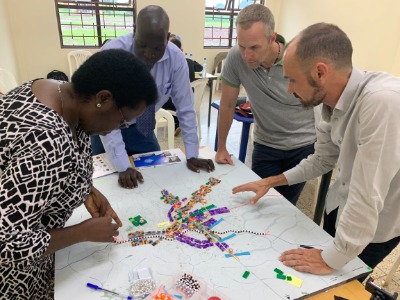
Our team
Richard Vokes (Director), UWA
Richard Vokes (Director), UWA
Richard Vokes is a Professor of Anthropology and International Development, and Discipline Lead for Anthropology, at The University of Western Australia. He is also a Research Affiliate of Oxford University, and a Research Associate of the Western Australian Museum Boola Bardip. As an Oxford University-trained anthropologist, Richard has been undertaking ethnographic research for 30 years, especially in Uganda and East Africa, and also in Antarctica and Australia. Many of his projects have focused on ethnographic methods and he has been outputting publications, and multi-modal projects, on this subject since 2006. Prior to that, he was a researcher on, and wrote the main textbook for, the UK’s first ever digital platform in the Social Sciences, the nationwide ‘Experience-Rich Anthropology’ platform (era.anthropology.ac.uk). In 2013, he was part of a team that developed an app and eBook called ‘Gorilla Highlands’, which in 2014 won a UN World Summit Award, the highest international prize in digital engagement. He is currently leading a number of major international projects in anthropology and development.
Anne Poelina, Notre Dame University
Anne Poelina, Notre Dame University
Professor Anne Poelina is a Nyikina Warrwa woman from the Kimberley. Anne is Professor, and Chair of Indigenous Knowledges at Notre Dame Australia University; Senior Research Fellow of the Nulungu Research Institute, and; Adjunct Professor in the College of Indigenous Education Futures at Charles Darwin University, Darwin.
Anne was the Murray Darling Basin’s (MDB) inaugural First Nations appointment to its independent Advisory Committee on Social, Economic and Environmental Sciences (2022); Visiting Fellow Water Justice Hub at The Australian National University, Canberra, and; Inaugural Chair of the Martuwarra Fitzroy River Council (2018). Anne was Co-winner of the Women Taking Climate Action Award, awarded by the Zonta Club of Melbourne on Yarra and the Zonta International District 23 Zonta Says NOW team (2023), and; Winner of the Kailisa Budevi Earth and Environment Award, International Women’s Day (2022), in recognition of her global standing.
Other positions include: Ambassador for the Western Australian State Natural Rangelands Management (NRM) (2023); Assistant Commissioner National Water Initiative (NWI), Productivity Commission of Australia (2024); Member of the Commonwealth of Australia Department of Climate Change, Energy, Environment and Water, Indigenous Advisory Committee (2024).
Founding member of the Commonwealth of Australia Department of Climate Change, Energy, Environment and Water, Aboriginal Water Interest Group, and; the Western Australian government’s Aboriginal Water and Environment Group (AWEG). In 2017, she was awarded a Laureate from the Women’s World Summit Foundation (Geneva), and was a Peter Cullen Fellow for Water Leadership (2011).
Anne’s current, ARC-funded project is studying Intergenerational cultural transfer of Indigenous knowledges.
Rochelle Spencer, Murdoch University
Rochelle Spencer, Murdoch University
Rochelle Spencer’s research embodies a commitment to applied anthropology, that is, the application of anthropological knowledge to development practice with emphasis on participatory processes. Her cross-cultural expertise informs her research with the intention of shaping local capacity development processes, gender sensitive approaches and inclusion of local perspectives. Her strengths lie in applying participatory approaches to the design, implementation and evaluation of development projects that help to inform technical expertise, programming, and policy. In this way, her research has significant applied real-world outcomes as it informs the development policy and processes of NGOs, development agencies, the private sector, and government to ensure the inclusion of local perspectives in development. Rochelle’s research spans the anthropology of development, gender and rural livelihoods, Indigenous social enterprise, capacity development and development tourism. Rochelle is founding co-Director of the Centre for Responsible Citizenship and Sustainability at Murdoch University, co-Chair of the Research for Development Impact Network, and Deputy Editor of the journal Development in Practice.
Sven Ouzman, UWA
Sven Ouzman, UWA
Sven Ouzman is an archaeologist and heritage specialist working in southern Africa, northern Australia and in Perth/Boorloo an surrounding areas. This work is in collaboration with multiple stakeholders, especially Aboriginal Traditional Owners, and focuses on topics such as: rock art, archaeology, heritage management including climate change, Indigenous knowledge, copyright, graffiti and museums. He has led projects in South Africa and Australia funded by peak bodies such as the National research Foundation (South Africa) and Australian Research Council. Details of this work plus contact particulars can be viewed here.
Len Collard, UWA
Len Collard, UWA
Professor Len Collard is a Whadjuk Nyungar elder and respected Traditional Owner of the Perth Metropolitan area and surrounding lands, rivers, swamps, ocean and culture. Dr Collard has a background in literature and communications, with research interests in Aboriginal Studies, including Nyungar interpretive histories and Nyungar theoretical and applied practical research models. Prof Collard has conducted research funded by the Australian Research Council, the National Trust of Western Australia, and many other research institutions and organisations. Len's research has allowed the broadening of the understanding of the many unique characteristics of Australia's Aboriginal people and has contributed enormously to elevating the appreciation of culture and heritage of the Southwest region of Australia. Len’s groundbreaking theoretical work has put Nyungar cultural research on the local, national and international stages.
A key focus of Len’s research is utilising and/or developing digital technologies and platforms to showcase his many research projects, including through; Noongar-pedia; Nyungar Placenames; Nyungar Tourism in the southwest of Western Australia; Nyungar Wardan Katitjin Bidi - Derbarl Nara; Nidja Beeliar Boodjar Noonookurt Nyininy: a Nyungar interpretive history of the use of Boodjar (country) in the vicinity of Murdoch University, Perth; Quop Maaman: Aboriginal Fathering Project; as well as the documentary film Noongar of the Beeliar.
Gertrude Atukunda, Makerere University
Gertrude Atukunda, Makerere University
Dr Atukunda holds a PhD in Sociology of Makerere University. She is a Socio-economist, employed with the National Agricultural Research Organisation, and based at the Aquaculture Research and Development Centre, Kajjansi. She has over 20 years’ experience conducting socio-economics research with focus on understanding livelihoods of rural farmers, including fish farmers and fishing communities. She has worked on various research projects focusing on economic analysis of fish farming enterprises, fish marketing and consumption dynamics, farmer organisations and the role extension service delivery in aquaculture development. She has participated in collaborative research projects within Uganda and with international partners in USA, Australia, Kenya, Tanzania and Congo with whom she has published her research.
Elizabeth Ayom Lang, Diversity Focus and Curtin University
Elizabeth Ayom Lang, Diversity Focus and Curtin University
Elizabeth Ayom Lang is the founding CEO of Diversity Focus, Perth-based research, consulting, and training company specialising in workplace diversity, equity, and inclusion at the intersections of gender, race, ethnicity, and culture. In recognition for her work, she was named Global 100 Under 40 Most Influential People of African Descent. She represented Australia in the UN Fellowship Program (2020), celebrating the Decade for People of African Descent. Elizabeth has a background in community development, academic teaching (social science), and qualitative research. She is passionate about grass-roots research that leads to positive and sustainable outcomes for communities. As an early career researcher, Elizabeth has published in international advocacy and domestic and family violence. She is currently completing her PhD at Curtin University, focusing on conceptualising domestic and family violence in collectivist contexts.
Lachlan Carracher, Martuwarra Fitzroy River Council
Lachlan Carracher, Martuwarra Fitzroy River Council
Lachlan is Project Manager of the Martuwarra Fitzroy River Council’s Living Water Heritage project. This project is breaking new ground in digital cultural mapping, and recently won the Interpretation Project prize at the WA Heritage Awards (December 2024). From its inception to delivery, Lachie has worked tirelessly on the Living Water Heritage projcte, including on everything from: project design, to funding and budgeting, risk management, stakeholder engagement, research, logistics, photography, GIS, post-production media editing, writing, content editing, web design, and reporting. The list goes on. Driven to "bring people along on the journey", for Lachie, this project has been about learning and sharing. Lachie is also Operations Manager for the Climate Adaptation Project with the Nulungu Research Institute in Broome. He draws on his diverse life experience to adapt solutions to meet the needs of this role.
Peter Deng, Africa World Books
Peter Deng, Africa World Books
Peter Deng is the Founder and Managing Director of Africa World Books (AWB) and the Chairperson of Africa World Books Community Education Inc. (AWBCE). Based in Perth, Western Australia, AWB was set up in 2013 as a publishing house for authors of African heritage – wherever they may be. It has since published more than 300 books, including fiction and folktales, history and ethnography, biographies, geography textbooks, and African language learning materials. At the heart of its mission is a desire to educate younger generations of Africans – be they living in Africa, or among Africa's global Diasporas, about African literature, history, culture, and society. AWB is connecting readers throughout the world with these subjects. Peter is co-designing the ethnographic methods for the ‘South Sudanese Stories’ project. For more information and to make contact, please visit AWB's website.
Anthony Duckworth, Fairplace and UWA
Anthony Duckworth, Fairplace and UWA
Fairplace and UWA
Anthony Duckworth runs Fairplace and is an urban design and architecture researcher, teacher and practitioner. Anthony has qualifications and experience in both Architecture and Civil Engineering and has worked in various built environment roles in the public and private sector of Australia and internationally. Over the past decade through his role at the School of Design and the Australian Urban Design Research Centre (AUDRC) at the University of Western Australia, in close partnership with industry and government he has developed and applied research to tackle the challenges of growing cities. His specialist areas include defining, reviewing and communicating the quality of residential environments and the integration of human needs into public places and projects. Through research and consultancy he has recently developed, trialled and applied a number of innovative and engaging interactive collaborative design models to enable co-creation of urban plans, projects and policy. Anthony’s engineering experience and knowledge combined with an aptitude for architectural research and design places him in a unique position to build the capability and applicability of urban design research.
Yu Tao, UWA
Yu Tao, UWA
Dr Yu Tao is a Senior Lecturer in the School of Social Sciences at the University of Western Australia, where he teaches and coordinates Chinese studies. Trained as a political sociologist in Peking, Cambridge, and Oxford, he investigates the historical and contemporary links between Chinese communities around the globe, focusing on the interactions between religious groups, civic organisations and local state agencies. One aim of his work is to demonstrate that Chinese Studies should no longer be divided along geographical boundaries. Before UWA, Dr Tao was a senior lecturer in Asia Pacific Studies at the University of Central Lancashire in England. He relocated to Western Australia in 2017 and currently co-leads the Chinese Western Australians project. Dr Tao is the China regional editor of Asian Studies Review, the flagship journal of the Asian Studies Association of Australia. He is also a fellow of the Higher Education Academy, the Royal Anthropological Institute of Great Britain and Ireland, and the Royal Asiatic Society. In addition to his academic publications in reputable English and Chinese journals, Dr Tao has published dozens of op-ed articles in newspapers, magazines, and online platforms.
Anu Rammohan, UWA
Anu Rammohan, UWA
Anu Rammohan is a Professor of Economics, and Director of International Engagement (Business School) at The University of Western Australia. She led UWA’s Australia India Institute from 2018-2022 and the Australia Indonesia Centre’s Partnership for Australia Indonesia Research’s (PAIR) program. She served on the Steering panel of the ARCH-India (Australia Research Collaboration-India) and in this capacity has served on selection panels for Australia-India research collaboration grants supported by the Department of Education.
Anu currently serves on the Australian Research Council's College of Experts, which oversees Australia’s largest competitive national research grants program. She served on the Editorial Board of The Economic Record, Australia’s premier economic policy journal. Her research is in Development Economics, Health Economics and Agriculture Economics. Her research has been funded through competitive grants from the Australian Research Council, DFAT, Australian Council of International Agriculture Research, Department of Health (WA), and the Australia India Institute. She has presented her research at numerous invited research seminars and conferences, both nationally and internationally.
Yirga Gelaw Woldeyes, Curtin University
Yirga Gelaw Woldeyes, Curtin University
Yirga Gelaw is a Senior Lecturer, multidisciplinary researcher and writer based at Curtin University’s Centre for Human Rights Education, Australia. Yirga has extensive experience from working with grassroots organisations in Ethiopia. Drawing from the lived experiences, philosophies, beliefs, and interests of marginalised communities across diverse cultures, Yirga contributes critical insights for reimagining the future and addressing social, epistemic, and racial injustices. He researches African historical experiences and Ethiopian traditions and writes creatively on belonging and diasporic lives. He has won university and industry awards for his teaching, research, and creative writing. His book Native Colonialism: Education and the Economy of Violence against Traditions in Ethiopia was published in 2017. The book contributed the theory of Native Colonialism, a process whereby a country colonises itself with ideas, institutions and practices that subjugate the majority of its population. His recent book (co-edited with Offord, Fleay, Hartley and Chan), Activating Cultural and Social Change: The Pedagogies of Human Rights is published by Routledge in 2022.
Winston Agaba, UBC
Winston Agaba, UBC
Winston Agaba is the Managing Director of Uganda Broadcasting Corporation, a position he has held since 2015. He has 30 years’ experience in Management, Marketing, Communications / Sales & Public Relations at varying levels. Prior to his current appointment he held senior management positions in leading private companies, specializing in media, marketing and strategy development and implementation. His experience and skill set is both national and international in scope. He has positively transformed businesses and institutions. Both Winston Agaba and UBC are delighted to be partnering with the Ethnography Lab of Western Uganda on a long-term project to digitize, research and activate the national media archive of Uganda.
Adam Keen, UWA
Adam Keen, UWA
Adam Keen is an Associate Lecturer in Anthropology in the School of Social Sciences at The University of Western Australia. Epistemologically, Adam approaches his research with a commitment to explore and emphasise the flowing, lively, embodied, more-than-human, and other-than-discursive dimensions of the temporally and spatially knotty lifeworlds his respondents live in and through. This approach is inspired by social and cultural thinking at the cross-section of Cultural and Human Geography and Anthropology, the multidisciplinary space from which he produces and explores diverse research questions. Methodologically, this commitment both affords and demands multi-modal methods of research.
While Adam is an early career researcher, in his fieldwork to date he has: mapped soundscapes and observed while participating in tent-camping tourism in Dwellingup, Western Australia to account for the fleeting production of place and space in the bush; reconceptualised the Go-Along interview method as an artist-led photographic participant observation technique for investigating the in-situ ethics (or ‘street ethics’) of street photographer’s practice in Tokyo, Japan; in his current research, Adam combines qualitative long-form surveys, semi-structured interviews, and participant-generated digital photo elicitation as a way to ask how tenants in Perth’s Inner-Metro area produce a sense of home in the private rental sector (i.e., privately rented dwellings) despite the many structural, informal, and sometimes, invisible barriers to doing so. Adam has also recently begun working on fictional storytelling (known as worldbuilding) as research method, praxis, and pedagogical asset, this is incorporated into a unit he convenes.
Joachim Strand, UWA
Joachim Strand, UWA
Joachim W. Strand is a lecturer in Media & Communication in the School of Social Sciences at the University of Western Australia. He is creative practitioner, screenwriter and academic and has worked for the Curtin University Film Department, and as a film lecturer at the SAE Institute. As a digital short-form creator, Joachim has conceptualized, written, and directed, as well as edited, colour graded, and sound mixed short dramas, music videos, corporate work, documentary films and experimental work.
His research engages with the formal interactions of cinematic audio and vision, the relationship between these interactions and the practice of screenwriting, and the use of soundscapes, field recordings and locational sound to shape and augment narrative potentialities. Joachim is particularly interested in the hybridisation of creative practice and academic theory, and how the construction and composition of the soundscape can engender multimodal counterpoints and make plastic the limits of exterior and interior perception. He also has a keen interest in slow cinema and hybrid and experimental documentaries.
Kwadwo Adusei-Asante, Edith Cowan University
Kwadwo Adusei-Asante, Edith Cowan University
Kwadwo Adusei-Asante is a Senior Lecturer in the School of Arts and Humanities at Edith Cowan University, Western Australia. Kwadwo has 20 years international research experience mainly on projects in Africa, Australia, The Netherlands and Sri Lanka. Over the last two decades Kwadwo’s research has focused on African communities and building evaluations systems and frameworks for the Australian social sector. As a Chief Investigator, Kwadwo has received projects and research funding of almost a million dollars. Kwadwo has produced over 120 publications in project reports, journal articles, book chapters, refereed conference papers, theses and presentations and achieved 10 PhD completions. Kwadwo is currently the Associate Editor of the Evaluation Journal of Australasia, and serves as a Board Member of the International Organisation for Cooperation in Evaluation representing the national professional evaluation groups in Australia, New Zealand and South Pacific Regions. Kwadwo is the founder and CEO of Edxcellence Incorporated, an organisation committed to offering civic information services and educational support to people from non-English speaking backgrounds across Perth, Western Australia, through contextualising teaching and learning practices.
Derrick Mugenyi Kaliisa, Makerere University
Derrick Mugenyi Kaliisa, Makerere University
Derrick Mugenyi Kaliisa is a Ugandan graphic artist who trained at Makerere University’s School of Fine Art. He is passionate about the ability of drawings to communicate as a design form. Through his art, he aims to tell impactful stories, in thought-provoking ways, to generate new knowledge.
He has previously worked as a designer and illustrator with UN Global Pulse Uganda, the Ugandan Ministry of ICT, Oxfam’s UPPA ‘Stories for Change’ programme, and on the ‘Future Museums’ project. In all of these collaborations, Derrick has explored how media such as comics, animation, and conceptual art may be all used in the development of innovative, development-oriented, communications strategies.
During the period of his residency at the Ethnography Lab, Derrick looks forward to engaging with UWA’s many innovative design and communications projects, and to developing new collaborations.

